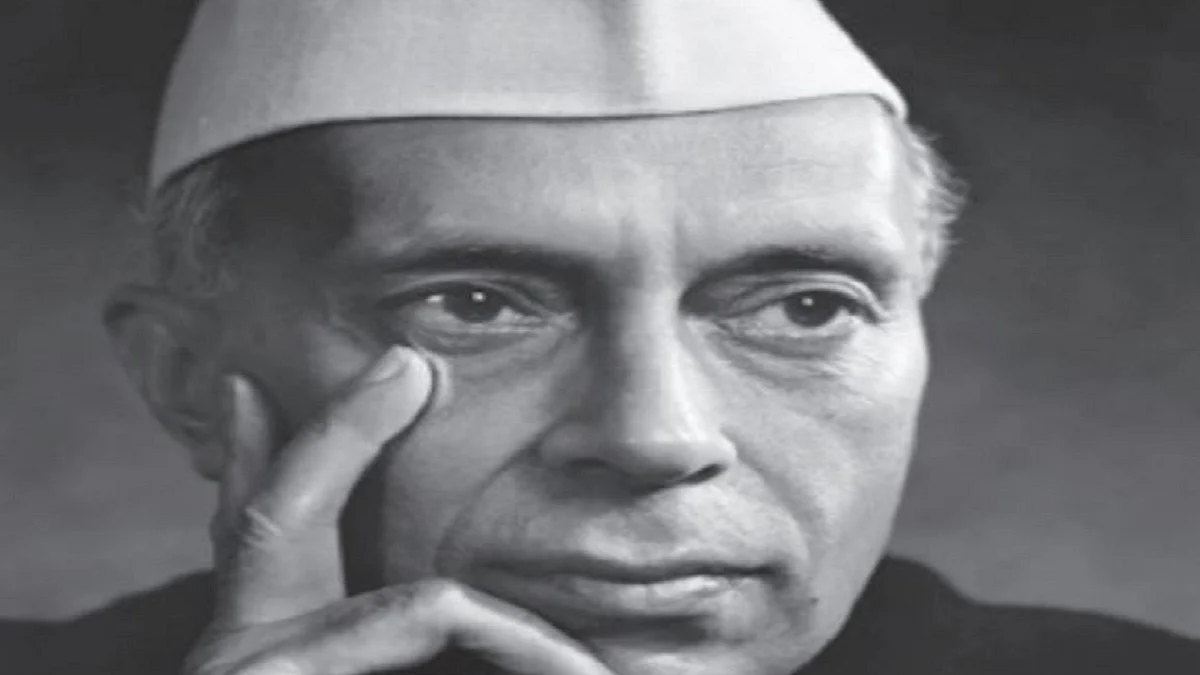Nehru’s Word: Zamindari abolition and beyond
We bring to you this week excerpts from speeches by Nehru on historic occasion of abolition of Zamindari in UP in July 1952, first in a series of similar legislation in different provinces of India

The farmers’ bills recently rushed through Parliament by the Government have led to massive protests both inside and outside Parliament. It is claimed that it is the first time since independence that such a historic step is being taken to improve the condition of farmers. This claim ignores the Land Reform legislation as well as the Green Revolution which changed the face of Indian agriculture and the lives of India’s peasants. In this context, we bring to our readers this week excerpts from speeches by Nehru on the historic occasion of the abolition of Zamindari in the UP in July 1952, the first in a series of similar legislation in different provinces of India.
Brothers and sisters, Just two days ago. Pandit Govind Ballabh Pant, the Chief Minister of this province, stayed with me in Delhi and suggested that I should come here today…But I wanted to come anyhow and meet all of you, and participate in today’s proceedings. I was reminded of the times, more than thirty years ago, when I used to wander among the peasants of this province, in the districts of Allahabad, Pratapgarh, Jaunpur, Rae Bareli, Sultanpur and other places.
The plight of those poor farmers is etched in my mind. I saw the harm that the zamindari system had done to the peasantry…. We had raised our voices against the zamindari system thirty years ago…But it has taken years of hard work to accomplish that task. Our most urgent priority was to challenge the might of British rule and overthrow its yoke. Only then could we take up other tasks…
The population of Uttar Pradesh is six to seven Crores and the majority of them are peasants. So, it was a great peaceful revolution to have abolished the zamindari system and thereby liberating millions of farmers from its yoke. In other countries, revolutions have meant bloodshed and violence. The peaceful revolution which has taken place in Uttar Pradesh has occurred in other states too… So, you can imagine how happy I was. I felt as I did on the day India became free….
But this is a big step which will benefit millions of people. The problem of land is millions of our people subsist on land. But the land problem is by no means settled by the abolition of zamindari, nor do we claim that we have done so. It has merely removed a very great obstacle from our path. A great burden has been lifted from the backs of the peasants. But now we have to take other steps and, if necessary, make new laws to improve the condition of the farmer….
With the abolition of the zamindari system, more farmers have got some land. But even now, there are a few people who own large areas of land. This is a problem which has to be solved quickly. Please remember that not only in the matter of land but as a matter of principle, we want that gradually there should be greater equality among the people in all walks of life, whether they work on land or are in business, in the urban or the rural areas.
Anyhow, every step that we take brings us nearer to the goal. For instance, after the abolition of zamindari system in Uttar Pradesh, the State Government has passed another law imposing a ceiling on ownership of land. As far as I remember no single individual can own more than thirty acres of land in future. It is a very good rule and gradually the disparity among the farmers will be reduced.... In this connection, I would like to mention about the land legislation in Kashmir which has solved the problem of land tenure there very quickly. You will find a new light on the faces of the peasants, both Hindus and Muslims, who had been poor and down-trodden for centuries. They are unable to believe that the land is now their very own.
(The first para is from a speech at Modi Nagar, 1 July 1952, the day zamindari system was abolished in Uttar Pradesh. The rest of the paras are from a speech at a public meeting under the auspices of the Delhi State Congress Committee in New Delhi, 6 July 1952.)
Selected and edited by Mridula Mukherjee, former Professor of History at JNU and former Director of Nehru Memorial Museum and Library
Also Read: Why are farmers protesting?
Follow us on: Facebook, Twitter, Google News, Instagram
Join our official telegram channel (@nationalherald) and stay updated with the latest headlines
